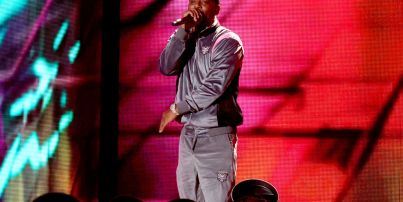Last month, J. Cole officially announced the iTunes preorder for his 2014 Forest Hills Drive album and fans had been anticipating its release ever since. The album ended up leaking before its official release and fans contemplated whether or not to listen early. Buzz surrounding a track called "Fire Squad," where Cole calls out Eminem, Justin Timberlake, Macklemore and Iggy Azalea for appropriating black culture, made the album hard to resist. Whether fans decided to take a listen early or wait for the official drop, all can agree the North Carolina rapper did not disappoint. It has been reported that the album may have the biggest hip-hop sales week of the year.
HipHopDX rated the album with 4 marks out of 5. Cole delivers more of the lyrical content that won fans over while tapping into some other approaches that have made Drake and Kendrick Lamar fan favorites.
There is enough packed inside 2014 Forest Hills Drive to make your palms sweat, urging for J. Cole to push through the finish line with a flourish. Cole has come home. The concept and a deft one — is the prodigal son returning. Making his way back to what's important, to what's at his core. He channels a few different emcees to do this. Kendricks' multi-verse on "03' Adolescence," "Wet Dreamz," and "G.O.M.D." As well as his own flame pit of bravado and melancholy on a "Tale Of Two Citiez," "Fire Squad," "No Role Modelz," and "Hello," and there's Drake sprinkled generously throughout the narrative as J. Cole elects to sing quite a few of his own hooks and quite a bit in general. The result is an album that wobbles violently between narratives, the different trade winds he's dealing in colliding with each other in sometimes-unforeseen ways.
The LA Times gave 2014 Forest Hills Drive 3 stars out of 4, noting its authenticity.
That insistence on authenticity is a familiar pose in hip-hop, which often measures success not by how far an artist travels but by how little that travel changes him. For Cole, though, the street isn't just a source of (borrowed) credibility; it's where this storyteller goes to absorb details that for others might merely be glimpsed on a screen.
2014 Forest Hills Drive, his third major-label disc, is thick with the residue of these immersions. Even when he's drawing on his own experiences — the album's title refers to the address of his childhood home — he exercises an observational acuity that suggests how much noticing he's been doing lately.
The Boombox called the album a "daring project" for the people, of course, like his other releases.
'Cole World: The Sideline Story' was a scattershot attempt at meeting expectations, and 'Born Sinner,' while better, was marred by too many tepid stretches. The stakes are higher on '2014 Forest Hills Drive' with no surprise guests to steer the hype machine. With the pressure solely on him to win, Cole amplifies his best and worst traits on his third studio effort.
'2014 Forest Hills Drive' is a daring project in a not-so-obvious sense. One main criticism of J. Cole throughout his career is that he's boring. The bland, overarching theme of retracing progress doesn't inspire much confidence. However, on this LP, we get Cole's most cohesive body of work to date.
According to Vibe, "2014 Forest Hills Drive is slated to sell between 240,000 and 270,000 copies. It is projected that the album will move more units than Rick Ross' Mastermind, which currently holds the year's biggest selling week in hip-hop with 179,000."
Take a listen for yourself on iTunes now.
© 2026 MusicTimes.com All rights reserved. Do not reproduce without permission.







